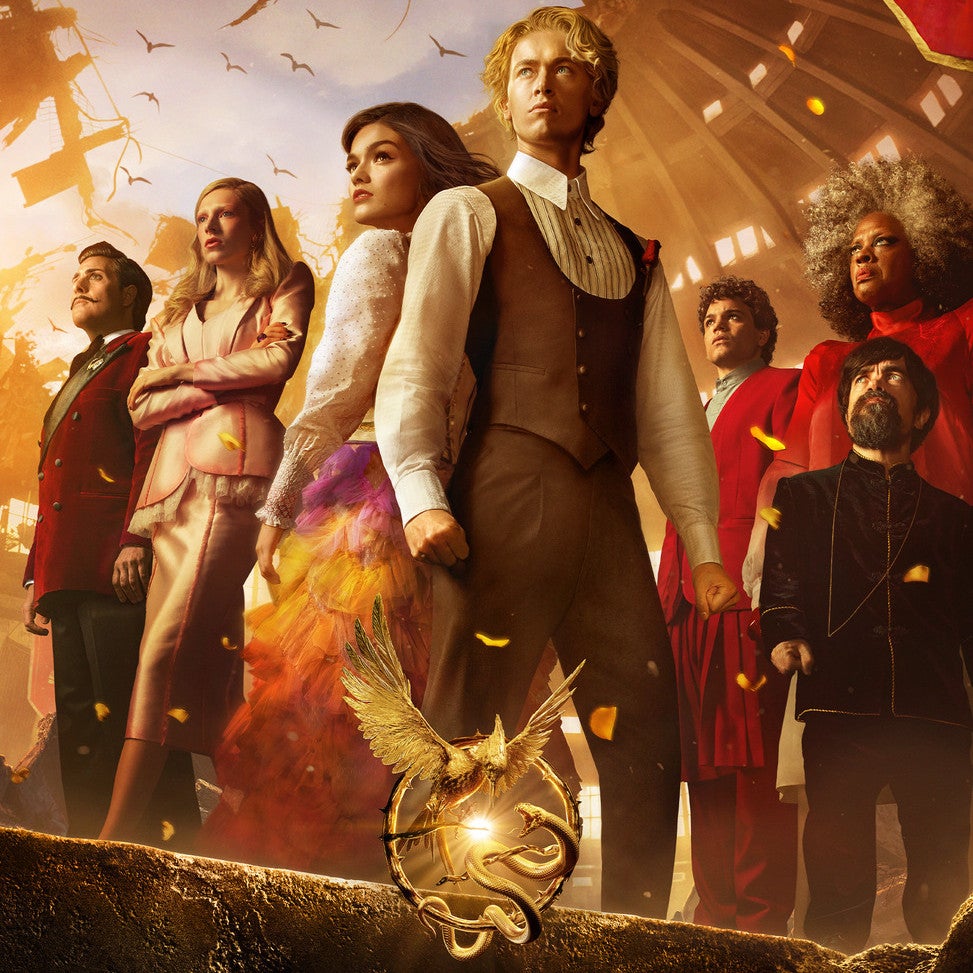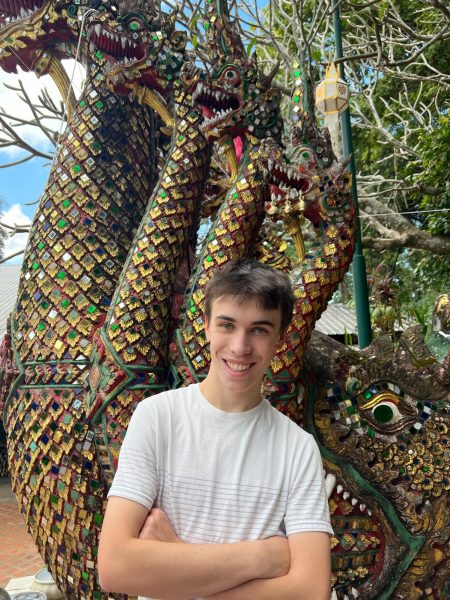This review contains spoilers for “The Hunger Games: The Ballad of Songbirds and Snakes.”
I’m a huge Hunger Games fan, so the odds were ever in my favor when The Ballad of Songbirds and Snakes was released in theaters a few weeks ago. This approximately three-hour-long prequel to the Hunger Games trilogy takes place 64 years before the first Hunger Games book, following a young Coriolanus Snow (later known as President Snow) as he navigates life in the capital and his relationship with District 12 tribute Lucy Gray Baird. While I’m usually skeptical of prequels, The Ballad of Songbirds and Snakes left me in awe.
The movie opens with a dark scene depicting Snow and his cousin Tigris scavenging for food amidst dangerous conditions; they witness someone chop off another person’s leg in order to eat it, and we are given the impression that this is a usual occurrence. While graphic, this was one of my favorite moments from the movie: Readers usually associate Snow with extreme power and wealth, so it was a great way to introduce that, for the rest of the movie, we are dealing with an extremely different Snow than in the original trilogy.
The film grapples with the struggle of maintaining one’s morals amidst challenging circumstances, as shown when Lucy Gray watches a fellow tribute take water that she had poisoned with the intention of killing an entirely different tribute. Seeing the pain in her eyes was horrific: The capital put her in a position where she had to choose between watching an innocent person die or saving that person by putting herself in extreme risk. While not a particularly graphic death, it was incredibly emotional, and it continued to show that the games are not only physically dangerous, but also emotionally harmful — even for the victor.
Another strength of the film was the way in which it added nuance to the characters, especially during the scene when Snow, Lucy Gray, and members of the Covey —a group of musical nomads — spent the day by a lake deep in the District 12 forest. Snow and Lucy Gray swimming, talking, and relaxing featured a completely different atmosphere than the rest of the movie, and it raised a lot of questions. By showing Snow’s humanity, this scene left me wondering: Was he destined to be evil? By portraying him in a different light, it made me wonder how his character would have developed had he just stayed in District 12 in hiding forever. And, if that had happened, would the Panem of the original trilogy be better or worse off?
My absolute favorite moment from the movie, by far, was the ending scene. While I’ve forgotten the majority of the book by now, one of the few things I do remember is being really creeped out by the final scene in the woods where Snow and Lucy Gray are alone. The movie encapsulated this perfectly. I could feel the tensions rising constantly, whether it was Snow examining the gun he used to murder the mayor’s daughter with an evil look on his face, Lucy Gray leaving the cabin to pick a plant with a knife, or Snow leaving the cabin to look for Lucy Gray — with her nowhere to be found. The remote backdrop of the scene added to the tension, because it felt like Lucy Gray could pop out of the forest at any moment.
In the final part of this scene, when Snow has a dramatic and violent outburst against a group of birds, I could finally picture him as the evil Snow that we know him as during the original trilogy. After all, this is a prequel movie, and we as an audience want to get from point A to point B: seeing Snow go from a charismatic and kind person to a cruel and evil leader. Throughout the movie, Snow did many questionable things, but this was the first time when I could feel just how unwell and disturbed he was. It was one of the best scenes I have ever watched, and I felt like a detective uncovering the backstory of the infamous President Snow. I was giddy after it ended.
Overall, The Ballad of Songbirds and Snakes was an exceptional prequel to the Hunger Games trilogy. I was in awe after seeing it, and, while its reviews aren’t amazing, it’s still one of my favorite movies that I’ve seen recently. The Hunger Games is a social commentary, dealing with themes of human nature, evil governments, oppression, rebellion, and love. It’s not a happy movie, and, after watching it, you should definitely feel slightly disturbed and scared for the future of Panem — maybe for our world as well.


